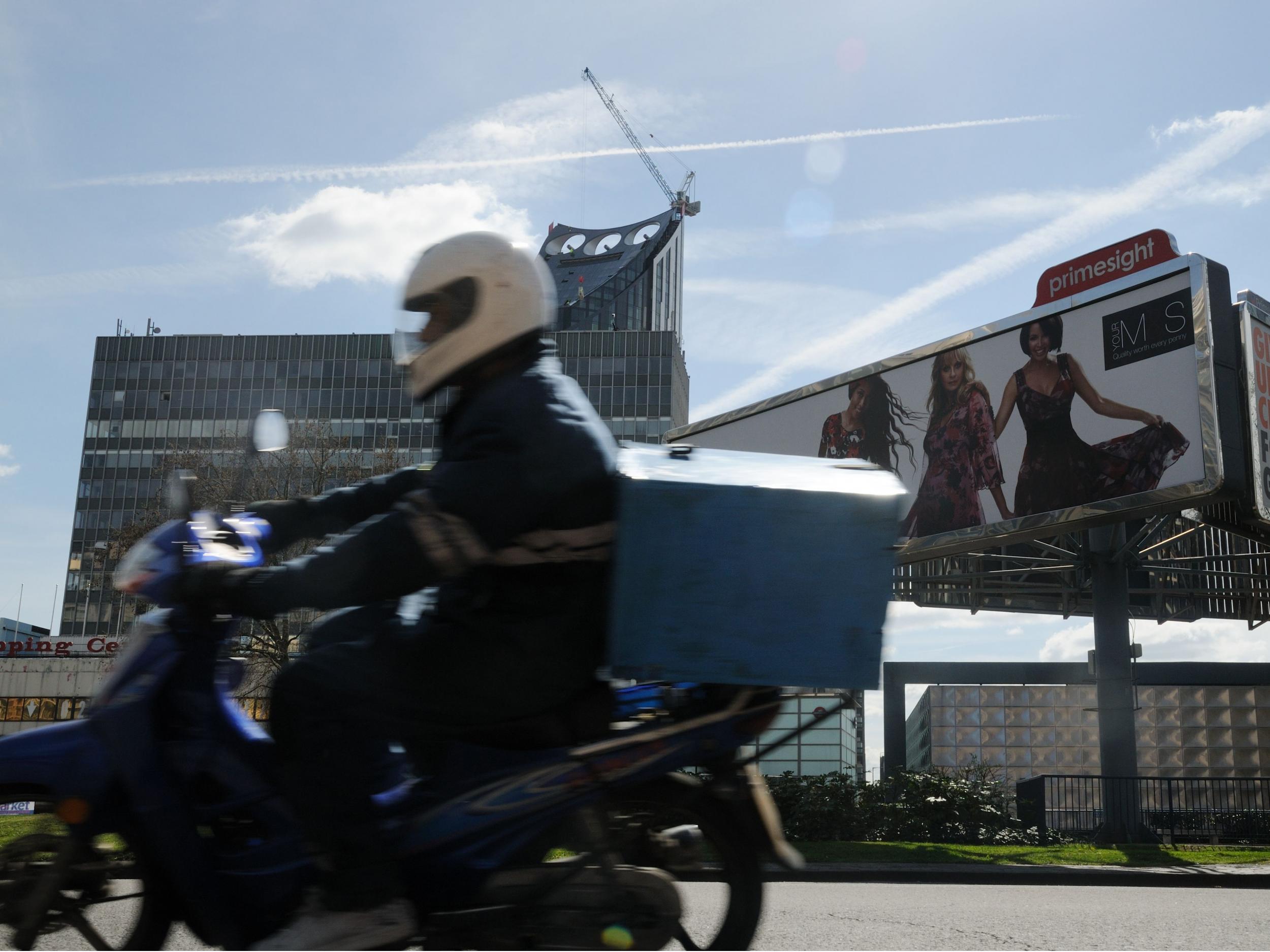Hermes boss is 'shocked' at the courier's treatment of gig economy workers
Firm's head of legal affairs has apologised for a case where a driver's contract was cancelled when he could not work after a child's premature birth

A boss at courier firm Hermes has apologised to MPs over a case in which a driver's contract was cancelled because he was unable to work due to the premature birth of a child.
Director of legal affairs Hugo Martin admitted the company had been “shocked” by evidence of the way its self-employed couriers were treated and said a new code of conduct introduced last year should make incidents of this kind a thing of the past.
MPs on the House of Commons Business, Energy and Industrial Strategy Committee grilled Mr Martin and other representatives of “gig economy” firms immediately after taking anonymous evidence in private from workers about their experiences of the controversial form of self-employment.
In one case raised at the committee, a courier said he had not taken a day's holiday in 10 years and was told on a day when he was working while sick that “the parcel is more important that you”.
And MPs also heard evidence of drivers working as many as 21 days without a break during the busy Christmas period.
Mr Martin told the committee that the treatment of the worker with a premature baby was “unacceptable” and would be a disciplinary matter under Hermes' new code.
“The standard operating procedures that have been rolled to all the field managers would stop that from ever happening today,” he said.
“If it happened in the past, all we can do is apologise and say the pressure of a vastly expanding business puts pressure on people.
”We had assumed couriers were being treated fairly throughout the network. It turns out in some cases they weren't.
“We accept that and we have taken real meaningful steps to address it and make sure it never happens again.”
Hermes now maintains a network of back-up drivers to provide cover in cases like the birth of a premature baby or a sickness, if couriers were unable to find someone else to do their round, he said.
Those wanting a break during busy periods were free to find “substitutes” to do their work for them.
Mr Martin said the case of a courier going 10 years without a holiday was “news to me”.
But he acknowledged that the company was “shocked” by the findings of Frank Field MP's 2016 inquiry into the treatment of self-employed workers in the gig economy, which prompted the introduction of its code of conduct.
He insisted that couriers were treated “with dignity and respect” and were not “unduly pressured” into going without holiday or days off sick.
Couriers earn a minimum of £8.50 an hour and an average of £12.20 - or £10.60 after expenses like petrol are taken into account - he said.
But Labour MP Peter Kyle told him: “The evidence we have seen is that (for couriers) life has to fit around the work.
”There is a chasm between what you are saying and the life you are describing of the couriers and the one we are hearing about.“
Hermes and other gig economy firms told the committee that they do not believe many of their self-employed drivers and riders would take up employee status if they were forced to offer it as a result of tribunal decisions.
Mr Martin said that offering employed status to up to 15,000 couriers would cost the company £58.8m a year in national insurance, holiday pay and sick pay, while cab-hire firm Uber's head of public policy Andrew Byrne said the bill for its 50,000 self-employed drivers would run into ”tens of millions“.
Both Hermes and Uber are currently facing employment tribunal cases brought by workers who want to be classed as employees rather than self-employed.
But Mr Martin told the committee: ”In our case we think the couriers don't want to be workers in the vast majority of cases. They are very happy being self-employed.
“The self-employment model creates a flexible framework which allows us to provide these opportunities in the first place.
”The work fits around the life of the couriers and their life is such that they would not be able to access traditional PAYE employment.
“We believe in the unlikely event that couriers were deemed to be workers, there would be very little take-up.”
Mr Byrne told the committee that the company could “cope with” switching its drivers on to employee status, but said it would mean “exerting more control over the driver” in terms of set shifts and paying a fixed salary which many drivers would not welcome.
The UK managing director of Deliveroo, Dan Warne, told the committee that the flexibility of self-employment was “very, very popular” with the company's 15,000 riders, the vast majority of whom fit stints delivering takeaway meals around other work or studies.
PA
Join our commenting forum
Join thought-provoking conversations, follow other Independent readers and see their replies
Comments